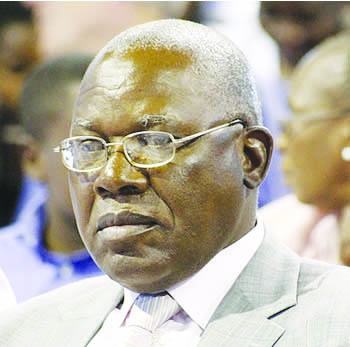


 LEGISLATORS from the previous Parliament are said to be separately preparing claims against the legislature over unpaid allowances running into millions of greenbacks, the Financial Gazette heard this week.The move comes as Clerk of Parliament, Austin Zvoma, said they had cut spending on programmes due to underfunding and had accumulated a bill of US$1 million with local hotels. The hotel bill was accrued this year alone.
LEGISLATORS from the previous Parliament are said to be separately preparing claims against the legislature over unpaid allowances running into millions of greenbacks, the Financial Gazette heard this week.The move comes as Clerk of Parliament, Austin Zvoma, said they had cut spending on programmes due to underfunding and had accumulated a bill of US$1 million with local hotels. The hotel bill was accrued this year alone.
The Financial Gazette reported in July that Parliament could face possible litigation from former lawmakers if they were not paid by July 31, 2013 when the last Parliament ended and Zimbabwe held elections which ushered in the new Parliament.
Former constitutional and parliamentary affairs minister Eric Matinenga had told the Members of Parliament that they could take legal action within three years from the date of dissolution of Parliament to force payment of outstanding allowances.
While the Financial Gazette could not immediately ascertain the amount owed to the former legislators, some of whom were re-elected into the current Parliament, indications are that some payments have been outstanding for the past five years.
A source within the Movement for Democratic Change (MDC-T) led by Morgan Tsvangirai revealed that former legislators were waiting for Finance Minister Patrick Chinamasa’s budget announcement dragging the legislative assembly to the courts in the event that Treasury decides to ignore this outstanding obligation.
He indicated that the MDC-T MPs might seek a group lawsuit to mitigate legal costs.
“I think the ZANU-PF MPs from the last Parliament may be persuaded against legal action because this would be seen as undermining their struggling government. But MDC-T MPs believe this is a matter of right and wrong; government has to pay what is due to the former MPs,” an MDC-T member based at the party’s headquarters said.
Former finance minister and MDC-T secretary general Tendai Biti was not answering his mobile phone when contacted yesterday. Chinamasa’s mobile number was unavailable.
Although Parliament is reeling under massive debts to hotels and legislators from the last session, it continues to accumulate bills due to non-payment to current members.
Zvoma said they were hoping government would avail funding to settle outstanding payments in the 2014 National Budget, whose presentation was postponed from the traditional month of November to a date still to be announced. Chinamasa has said the budget would be presented without fail by January as required by law.
Analysts said with the current cash crunch affecting government, it was unlikely Parliament would receive a vote to pay off debts.
While Parliament needed between US$33 million and US$35 million to cover its costs in the current year, it was allocated only US$15 million for 2013. This resulted in it cutting down on programmes, and accumulating debt to service providers.
The august House owes US$1 million in accommodation costs for out of town legislators to most major hotels in the capital.
Unpaid allowances for current Parliamentarians, whose first session began in September, have started accruing, while legislator allowances from last Parliament are still outstanding, with no solution in sight.
Vehicles for which the august House is supposed to facilitate by way of loans at concessionary rates for the parliamentarians are nowhere close to coming because of lack of resources.
Administration and research support for legislators and their committees from Parliament staff is stretched too thin with Zimbabwe having one of the lowest member-to-staff ratio in the world.
“Some countries have 1:4 ratio, where one member has four (parliament) staffers; but here we have more members than staff,” Zvoma said.
Added to that, legislators have neither constituency offices, staff nor equipment to assist them in doing their work.
“The resources are not enough to do all our programmes. Ideally we would like to have everything covered by the taxpayer… we are not able to get what we require so we have scaled down. Programmes are always ambitious but reality on the ground suggest that there is need to scale down without necessarily undermining the overall core business of ours,” said Zvoma.
“Parliament exists within the context of the national economy. If the national economy is facing challenges, Parliament is similarly affected.”
Although Zvoma denies it, some members of the House say the lack of resources is likely to affect the number of sitting days for legislators as well as meeting times for portfolio committees through which the Parliament works.
Although the new Constitution provides that there are now 16 official languages in the country, this is far from being reflected in the august House as the cost for equipment and staff for simultaneous interpretation is way beyond reach.
“It certainly cannot all be done this session,” says Zvoma.
The current session ends mid 2014. Although Zvoma hopes the next budget will allocate the needed US$35 million he says, “Whatever we get, there will be a parliament and it will perform its duties.”